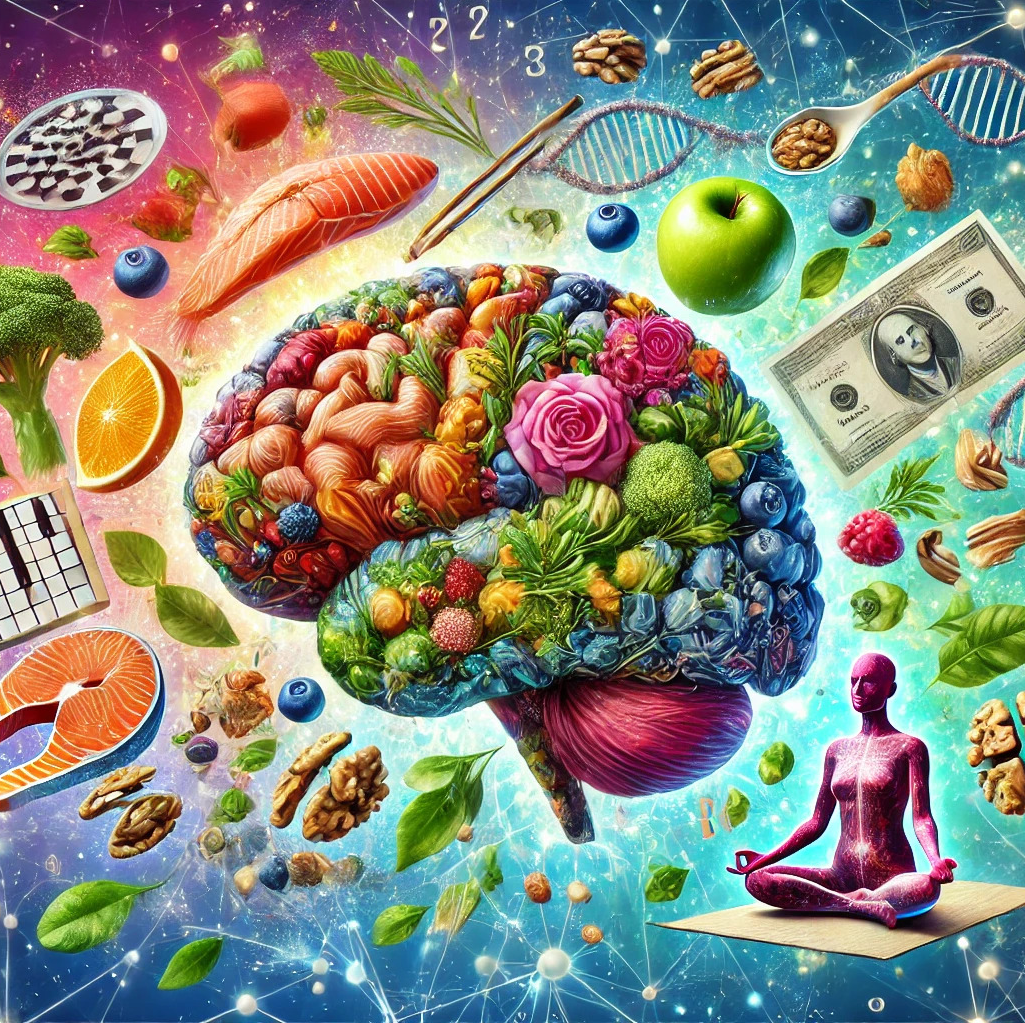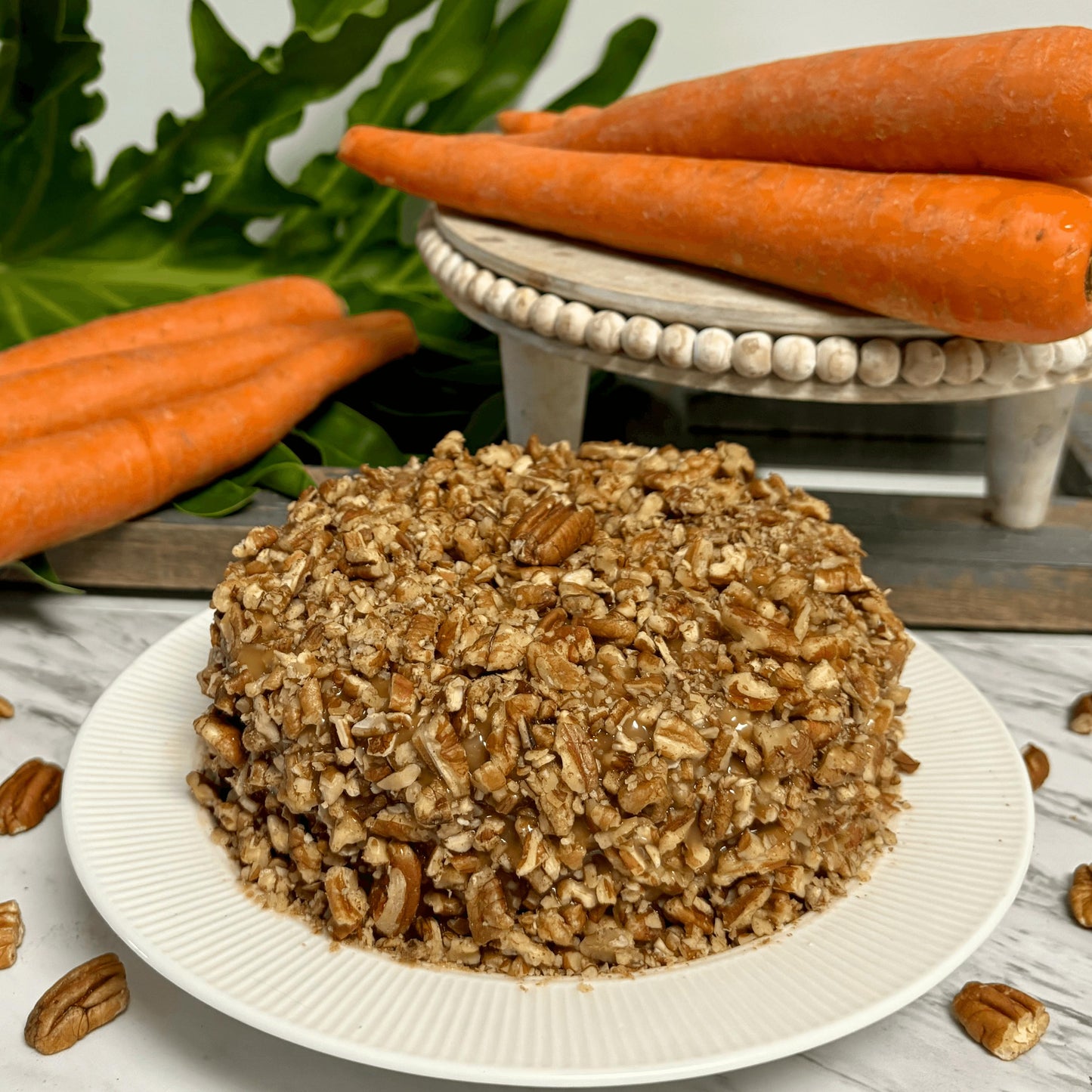
In recent years, advancements in neuroscientific research have unveiled the profound impact our dietary habits have on brain health. As we navigate this intricate web of interactions, it becomes clear that both nutrition and cognitive training are integral to maximizing the brain's capabilities. This article delves into how our brains function, the role of nutrition, and the importance of cognitive exercises in maintaining and enhancing brain health.
Understanding the Brain's Nutritional Needs
Our brain, while only accounting for about 2% of our total body weight, demands roughly 20% of our daily caloric intake. This significant energy requirement underscores the importance of proper nutrition in maintaining brain function, repairing cell components, and forming new neural pathways. A well-balanced diet provides the essential materials for these processes, ensuring our neurological pathways remain active and adaptable.
Nutrients that Nourish the Brain
Scientific evidence robustly supports the idea that certain nutrients have neuroprotective effects. Key players include omega-3 fatty acids, B-vitamins, antioxidants, and specific dietary patterns like the Mediterranean diet.
- Omega-3 Fatty Acids: Found in fatty fish, walnuts, and chia seeds, omega-3s are crucial for brain health. They are fundamental components of neuronal cell membranes and possess anti-inflammatory properties that support cognitive function.
- B-Vitamins: Vitamins B6, B9 (folate), and B12 are vital for brain health. They help reduce homocysteine levels, high levels of which are linked to cognitive decline.
- Antioxidants: These combat oxidative stress, a major factor in aging and neurodegenerative diseases. Brightly colored fruits and vegetables, tea, coffee, and dark chocolate are rich sources of antioxidants.
- The Mediterranean Diet: Characterized by high consumption of fruits, vegetables, whole grains, and olive oil, along with moderate fish intake, this diet is associated with better cognitive function and a lower risk of neurodegenerative diseases. It is also low in processed foods and sugars, which are linked to cognitive decline.
The Synergy of Nutrition and Brain Health
No single nutrient or food can ensure optimal brain function. Instead, a balanced, diverse diet full of different nutrients is the key to long-term brain health. This dietary approach supports various brain functions, from memory and attention to emotional regulation and cognitive resilience.
Cognitive Training: Exercising the Brain
Beyond nutrition, cognitive training is essential for maintaining and enhancing brain function. Neuroplasticity, the brain's ability to reorganize and form new neural connections, is the foundation of these exercises. Here are five brain exercises that can be incorporated into daily routines:
- Dual-Tasking: Engage in activities that require simultaneous use of different brain functions, such as walking while doing mental math. This challenges coordination between various brain areas.
- Memory Enhancement Games: Games like Sudoku, crosswords, or memory match enhance working memory and problem-solving skills.
- Learning a New Skill: Acquiring new skills promotes the formation of new neural pathways. Choose activities requiring fine motor skills, like knitting, painting, or playing a musical instrument.
- Mindfulness Meditation: This practice improves attention, reduces stress, and enhances emotional regulation, promoting structural changes in brain areas associated with sensory processing and emotional responses.
- Physical Exercise: Physical activity increases blood flow, improves mood, enhances memory, and reduces the risk of cognitive decline. Incorporating daily physical activity, even just a walk, benefits brain health profoundly.
Conclusion: Embrace a Brain-Healthy Lifestyle
The intersection of nutrition and neuroscience offers a holistic approach to enhancing the brain's capabilities. A balanced diet rich in brain-healthy nutrients, combined with a variety of cognitive and physical exercises, can lead to significant improvements in cognitive function, memory, attention, and emotional health. This understanding reaffirms the adage, "You are what you eat," and highlights the necessity of exercising both the body and the brain. It's never too late to start nurturing your brain. Embrace these insights and take actionable steps to improve your dietary habits and cognitive practices today.
Call to Action: Start Your Journey to Optimal Brain Health
Evaluate your daily habits and make conscious choices to support brain health. Integrate brain-healthy foods into your diet and engage in cognitive training exercises. Here's a 7-day meal plan to kickstart your journey towards enhanced brain health:
7-Day Brain-Healthy Meal Plan
Day 1:
- Breakfast: Greek yogurt with blueberries, walnuts, and honey
- Lunch: Quinoa salad with mixed vegetables, chickpeas, and olive oil
- Dinner: Grilled salmon with steamed broccoli and sweet potatoes
- Snack: Dark chocolate and a handful of almonds
Day 2:
- Breakfast: Oatmeal with chia seeds, banana, and a sprinkle of cinnamon
- Lunch: Whole grain wrap with hummus, avocado, spinach, and roasted peppers
- Dinner: Lentil soup with a side of mixed greens salad
- Snack: Apple slices with almond butter
Day 3:
- Breakfast: Smoothie with spinach, mango, flaxseeds, and almond milk
- Lunch: Tuna salad with mixed greens, cherry tomatoes, and olive oil
- Dinner: Baked chicken breast with quinoa and roasted Brussels sprouts
- Snack: Carrot sticks with hummus
Day 4:
- Breakfast: Whole grain toast with avocado and poached eggs
- Lunch: Mediterranean bowl with farro, cucumber, tomatoes, olives, and feta
- Dinner: Shrimp stir-fry with mixed vegetables and brown rice
- Snack: Berries and a piece of dark chocolate
Day 5:
- Breakfast: Chia pudding with mixed berries and a drizzle of honey
- Lunch: Minestrone soup with a side of whole grain bread
- Dinner: Turkey meatballs with zucchini noodles and marinara sauce
- Snack: Pear slices with walnuts
Day 6:
- Breakfast: Smoothie bowl with acai, granola, and sliced kiwi
- Lunch: Black bean and corn salad with a lime vinaigrette
- Dinner: Baked cod with sweet potato wedges and sautéed spinach
- Snack: Greek yogurt with a handful of blueberries
Day 7:
- Breakfast: Scrambled eggs with spinach and whole grain toast
- Lunch: Chickpea salad with cucumbers, tomatoes, and tahini dressing
- Dinner: Beef and vegetable stir-fry with quinoa
- Snack: Dark chocolate and a handful of mixed nuts
Start today, and embark on a journey towards a healthier, more vibrant brain. Your future self will thank you.
Here are some important resources that you may find beneficial:
- Neurological and Medical Research Articles
- Gómez-Pinilla, F. (2008). Brain foods: the effects of nutrients on brain function. Nature Reviews Neuroscience, 9(7), 568-578. This review discusses the neuroprotective effects of various nutrients and their role in brain function.
- Diamond, A. (2013). Executive functions. Annual Review of Psychology, 64, 135-168. This review presents evidence on how executive functions can be improved, including through physical exercise.
- Tang, Y. Y., Hölzel, B. K., & Posner, M. I. (2015). The neuroscience of mindfulness meditation. Nature Reviews Neuroscience, 16(4), 213-225. This review discusses the benefits of mindfulness meditation on attention, stress, and emotional regulation.
- Nutritional Research Articles
- Morris, M. C. (2016). Nutrition and risk of dementia: overview and methodological issues. Annals of the New York Academy of Science, 1367(1), 31-37. This paper examines the relationship between various dietary factors and the risk of dementia.
- Sarris, J., Logan, A. C., Akbaraly, T. N., Amminger, G. P., Balanzá-Martínez, V., Freeman, M. P., ... & Jacka, F. N. (2015). Nutritional medicine as mainstream in psychiatry. The Lancet Psychiatry, 2(3), 271-274. This paper discusses the critical role of diet in mental health.
- Books
- The Brain that Changes Itself by Norman Doidge. This book delves into the concept of neuroplasticity and how the brain can change and adapt.
- Brain Food: The Surprising Science of Eating for Cognitive Power by Lisa Mosconi. This book provides insights into the connection between food and brain health.
- Spark: The Revolutionary New Science of Exercise and the Brain by John J. Ratey. This book discusses the profound effects of physical exercise on brain health.
Please note that the field of neuroscience is constantly evolving, and new research may provide further insights into the topics discussed here. The articles and books listed provide a solid basis for understanding the relationship between nutrition, cognitive training, and brain health.
By Guillermo Brillembourg




